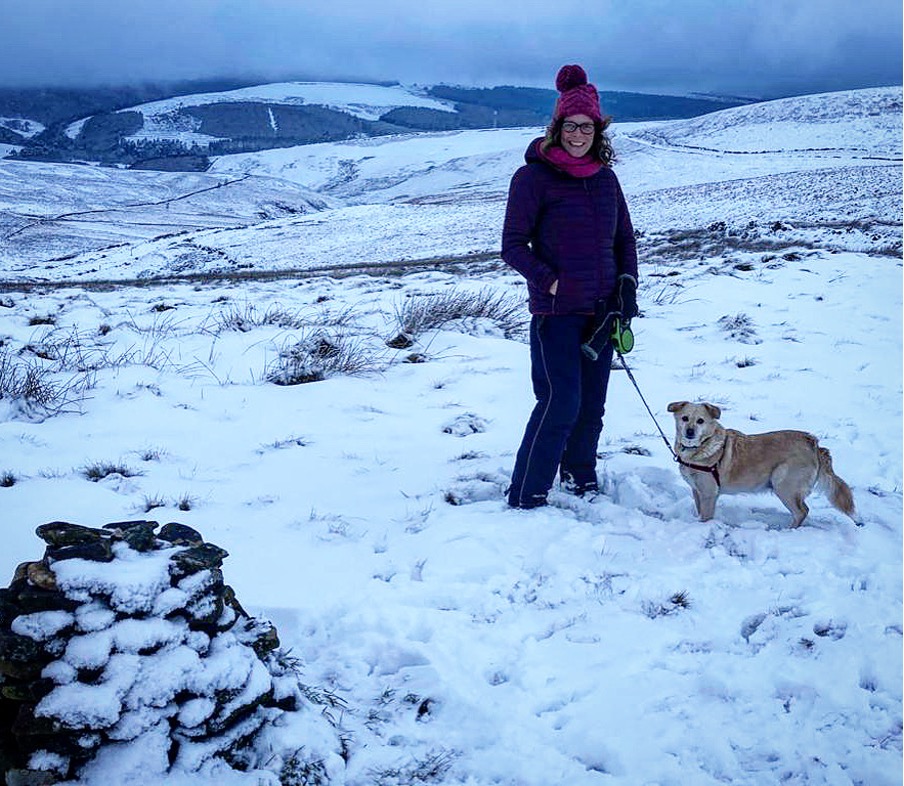
Fiona Holland
Specialist Team
I am a behaviour change specialist with a background in human health and wellbeing. I started my career in sport science, gaining a master's degree in sport psychology from the University of Minnesota, and developed a special interest in supporting lifestyle change (without stigma) for people of all shapes and sizes. I worked for over 15 years in the USA developing and running wholistic lifestyle change interventions and programmes for diverse groups across the lifespan.
I returned to the UK to teach in Higher Education and completed my doctorate at the University of Derby. A passion for education runs through my career, and more recently I helped to develop the first MSc in Behaviour Change in the UK and I have taught on this programme for more than seven years.
Since then, I have worked on a wide range of human behaviour change projects with students and commercial partners for example assisting with bid writing, project design, evaluation, and training. I am a certified Motivational Interviewing trainer and I enjoy developing tailored trainings for varied groups. I’ve worked with dentists, nurses, social prescribing teams, physical activity mentors, psychologists in training, and via Human Behaviour Change for Animals, with animal welfare teams across the world.
I also specialise in qualitative evaluation and also train people in effective interviewing skills, qualitative analysis, research project development and writing for publication.
A Chat with Fiona
Tell us a little bit about you and your journey into behaviour change?
Looking back I’ve always had behaviour change as part of my career path. As an educator I’ve always tried to support people in engaging with knowledge, so it becomes embodied, so facilitating this involves many aspects of behaviour change. For example, creating conducive environments, being compassionate while people struggle with new concepts, giving constructive feedback, and offering coaching-style communications.
Diving into the theories and strategies involved in sport psychology helped me to understand more about behaviour change for athletes, however, I decided to use these for non-elite populations and applied these in my health promotion roles. Upon returning to academia, I supported students in understanding the importance of developing behaviour change interventions that involve collaborative design, sound behavioural principles and robust evaluation. In developing the MSc in Behaviour Change, I’ve helped students from a broad variety of working contexts to develop their skills as behaviour change specialists, intervention designers, and researchers.
I’ve always aimed to be compassionate in working with people around behaviour change and when I came across Motivational Interviewing I found a wonderful ethos and practice that gave me a both a framework and world-wide community of fellow practitioners. I became a certified MI trainer in 2017 and have enjoyed supporting students in learning effective communication skills that support change ever since.
Why does the science of behaviour change matter?
Behaviour change is everywhere, and will be increasingly important as we face challenges to our climate, health and ecosystems. We’ve seen this keenly during the pandemic as people have had to change behaviours drastically. We need behaviour change on individual, societal and global levels to make the changes needed for sustainable life on our planet.
What is the most inspiring behaviour change intervention you have come across and why?
Motivational Interviewing is a recognised behaviour change technique/intervention, and one that has global reach. It is used worldwide to support people in owning their changes as they are skilfully guided by a compassionate MI-trained partner. It is a way of working with people that can be effective in many situations; it can help dissipate conflict, be used in groups and with individuals, and both at grass roots and senior leadership levels.
What’s your vision for behaviour change for the next five years?
Behaviour Change will become embedded into most organisations and there is a need for skilled, evidence-based practitioners leading this across a range of contexts. I’d like to be part of upskilling them, and supporting their increasing confidence so they can be pioneers in their fields and lead the charge for a more sustainable and healthy planet.
Why do you like working with HBCL?
It brings together two of my passions - education and behaviour change. I feel energised by the work, and know that it has great purpose and value. I really like to support people in their learning and application of new knowledge, and I try to instil a sense of fun along the way.
Top tip for individuals or organisations getting started with behaviour change?
It is important to use the evidence rather than pop literature and lay understandings. Having a sound scientific base for practice helps you to know that what you are doing is tried and tested. Upskilling staff so they understand key principles is vital and longer term this empowers them to then lead from within the organisation.
I am excited to join the HBCL team and help practitioners and companies around the world to develop a deeper and richer understanding of behaviour change, and to support them in embodying and applying this knowledge in their working (and personal) lives. I aim to do this with respect for their previous knowledge and in the spirit of collaboration.
